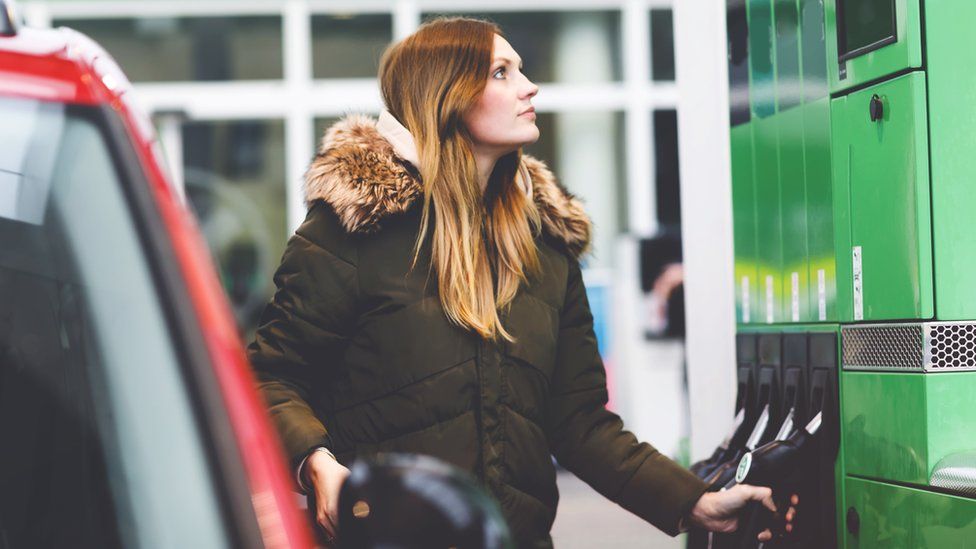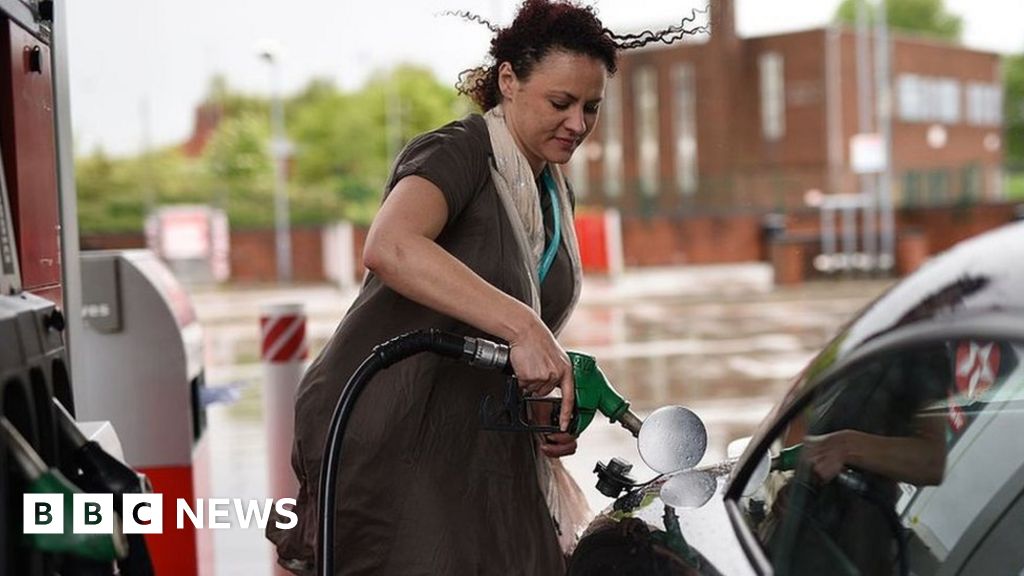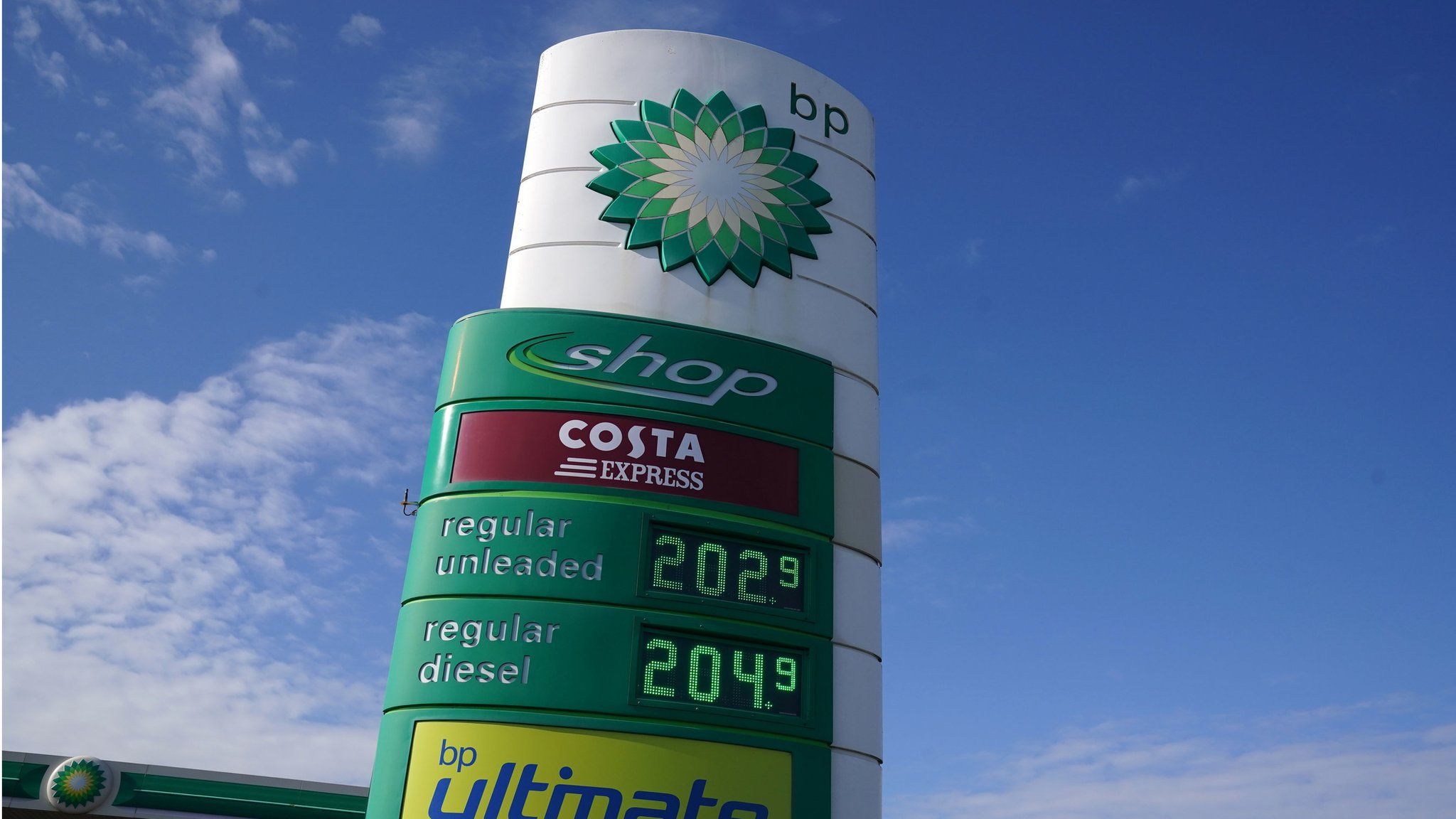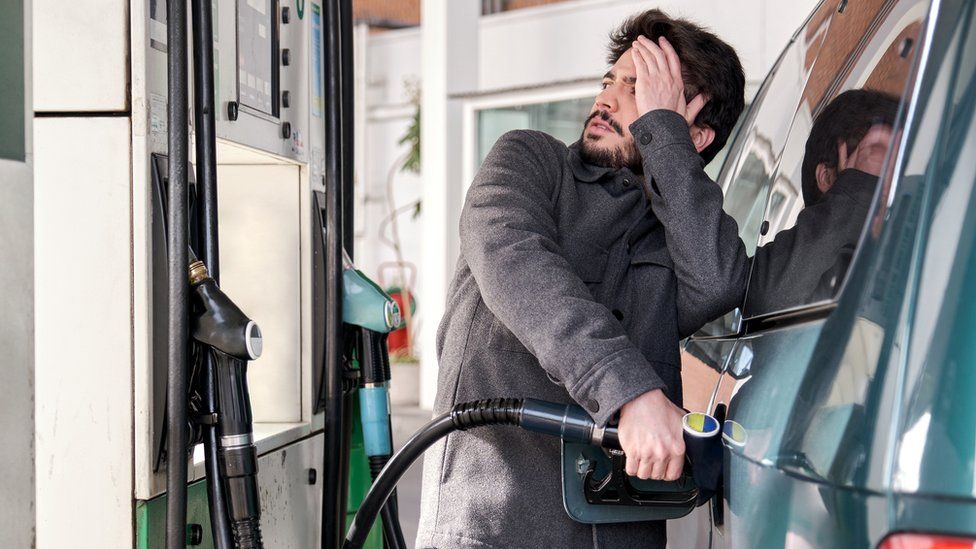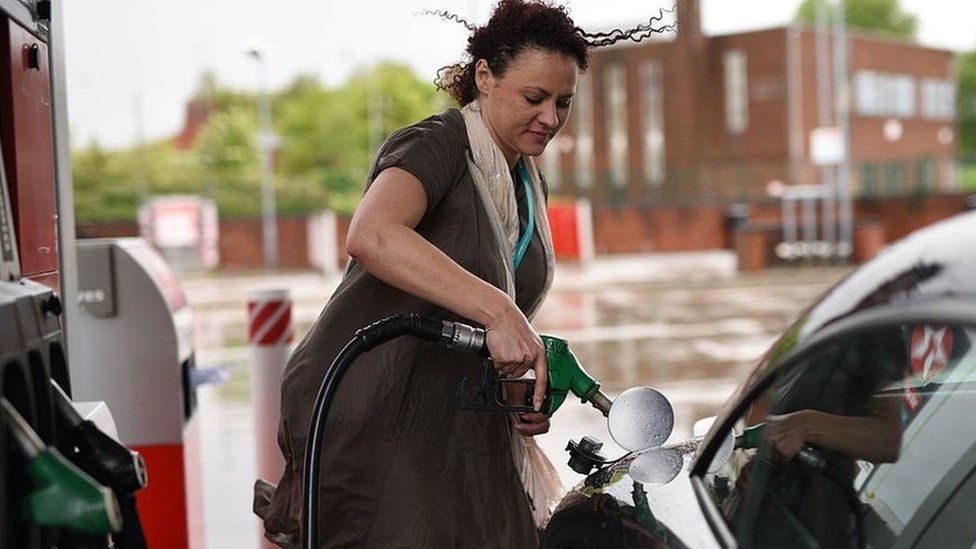
The price of petrol saw its biggest daily jump in 17 years on Tuesday with a rise of more than 2p a litre, according to the RAC.
The motoring organisation said the average cost of filling a typical family car with petrol was now £99.40.
It warned the cost could exceed £100 as soon as Thursday.
Soaring fuel prices have been driven by the war in Ukraine and moves to reduce Europe’s dependence on Russian oil.
The average price of petrol rose to 180.73p per litre on Tuesday, the RAC said.
Meanwhile, the average price of diesel rose by almost 1.5p to another record high of 186.57p per litre, making the cost of filling a 55-litre family car £102.61.
RAC fuel spokesperson Simon Williams said the accelerating costs of forecourt fuel was “unprecedented”, adding it appeared prices were “still some way from the peak”.
But he said while the average price of diesel is heading towards £2 a litre, the cost of wholesale petrol had unexpectedly dropped by about 5p a litre on Tuesday, which if remained, could stem the flow of “daily record petrol prices”.
Retailers base their prices on the wholesale cost of petrol and diesel but there is typically a two-week lag for pump prices to reflect any changes in wholesale prices due to the time it takes for fuel to reach forecourts.
Mr Williams said the RAC’s fuel watch data showed Asda had hiked its average petrol price by nearly 5p a litre in a single day, which he said was “unheard of”.
If prices increase by a similar amount on Wednesday, the average cost of a full tank for a 55-litre family car with unleaded will be more than £100 for the first time.
Meanwhile, some forecourts are already selling petrol above £2 per litre, according to price comparison website PetrolPrices.
The highest price was found to be 202.9p at BP sites on the A1 near Sunderland, the M4 near Chippenham in Wiltshire and the M6 near Burton-in-Kendal, Cumbria.
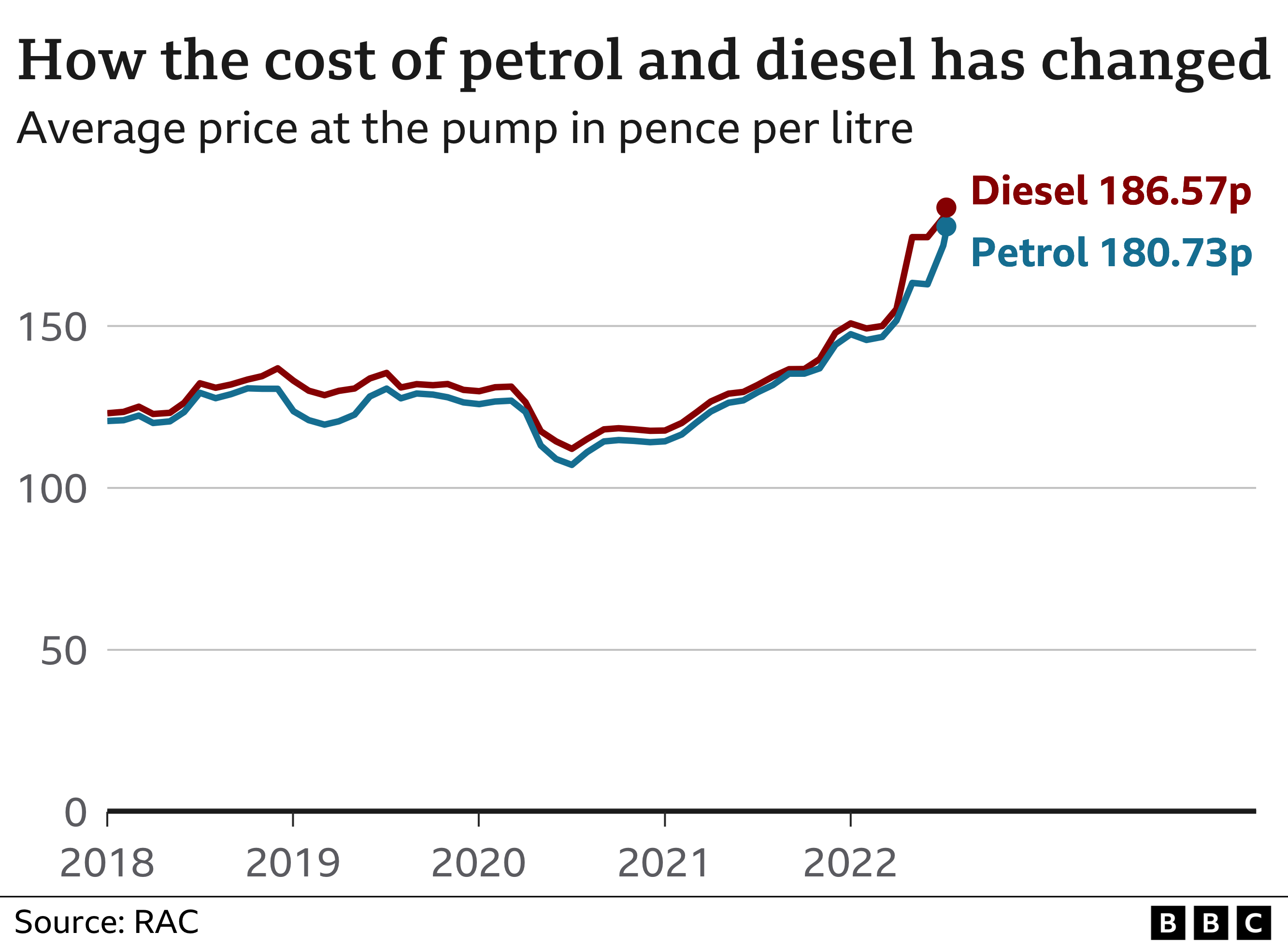
The AA motoring group said the 2p litre rise was a “huge shock”, but said the speculation that petrol prices could rise to £2 per litre on average “just gives the fuel trade licence to pile on extra cost and the misery”.
In March, the government announced a 5p per litre cut to fuel duty to help reduce costs for motorists.
However, motoring groups have raised concerns retailers are not passing on the cut to customers.
On Tuesday a government source told the BBC a plan to name and shame petrol stations that fail to do so is “still in the works”.
The government says any increases in VAT receipts it gets from rising fuel prices are likely to be largely offset by reduced household spending and VAT on other items.
Fuel prices, which increased as global economies recovered from the coronavirus pandemic, have since surged after Russia’s invasion of Ukraine pushed up oil prices.
Changes in prices at the pump are mainly determined by crude oil prices and the dollar exchange rate, because crude oil is traded in dollars.
Russia is one of the world’s major oil exporters and it is being targeted by economic and trading sanctions, which has led to potential supply concerns.
EU leaders have said they will block most Russian oil imports by the end of 2022 to punish Moscow, which has also had an effect on prices.
The UK – which gets 8% of its oil needs from Russia – has pledged to phase out Russian oil by the end of the year and though it is not as dependent on Russian oil as the EU is, it is impacted when global prices rise.
-
- 20 hours ago
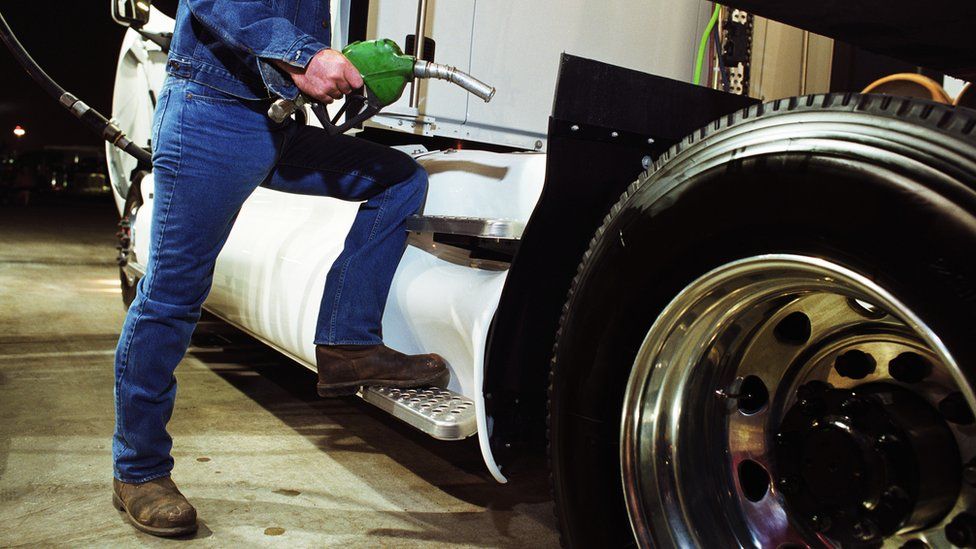
-
- 20 hours ago
